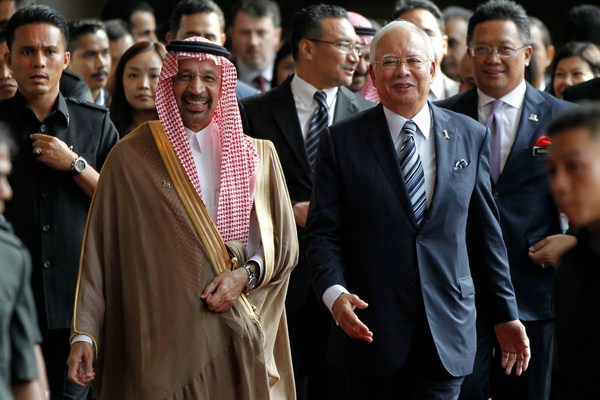Oil markets are expecting the Organization of the Petroleum Exporting Countries (OPEC) and its allies to extend their supply quotas when they meet in Vienna on Thursday. The current production cuts have failed to drain bloated oil inventories due to a remarkable resurgence in U.S. shale production. Keeping production down will not be easy for the coalition of 24 oil producers, 11 of which are not in OPEC. Even if fully implemented, an extension of the deal will likely just prevent oil prices from falling, while giving more market share to U.S. shale.
It seems that OPEC has lost the battle against shale, again. Since the dramatic fall in world oil prices in 2014, OPEC has fought two unsuccessful battles against American shale producers.
The first was over market share, and it began in November 2014, when Saudi Arabia refused to cut any production at a notorious OPEC meeting. Instead, OPEC’s top producer began ramping up production, in an effort to drive higher-cost producers out of the market—not just the U.S. fracking industry, but also Canadian tar sands and deepwater fields in the Gulf of Mexico.

